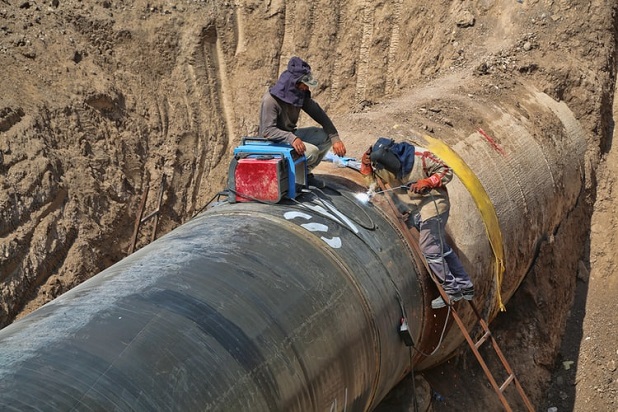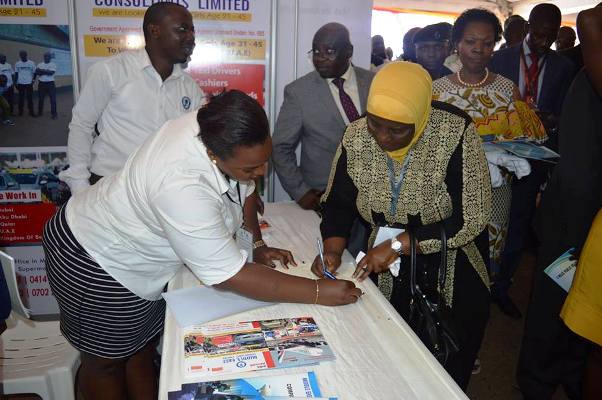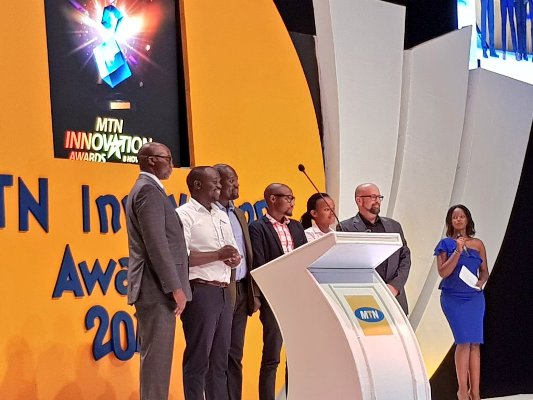When parliament passed the law operationalizing the East African Crude Oil Pipeline Company last year, the 10-year tax holiday stood out, but its implementation unveils major contrasts with the current tax regime.
The object of the EACOP Special Provisions Act is to enable the agreement between Uganda and Tanzania, the Host Government Agreement, and to facilitate the development of the East African Crude Oil Pipeline Project.
The law provides for tax administration regarding the EACOP Project, level 1 contractors or companies and persons that are contracted by the EACOP, and level 2 contractors (those contracted by the level 1 contactors.
It provides for how the company will be treated for various taxes and the relationship between the EACOP and the subcontractors regarding business between them, and in regard to taxation of their transactions.
These include capital gains tax, corporation tax, VAT, and withholding taxes, among others.
Companies that have invested in the oil and gas industry have been subjected to a Capital Gains Tax whenever they intend to sell their assets if the asset has gained in value over time.
The value gained is taxed, and this has been one of the main centre of contention between the government and the oil companies.
According to the Act, “no gain or loss, or deemed gain or loss arising solely as a result of a change in the direct or indirect ownership of the Project Company in respect of the deemed disposal of the assets of the Project Company is to be included in the chargeable income of the Project Company”.
According to a financial advisory firm, KPMG, at the point of sale of an asset, whether there is a gain or a loss, it is not to be considered for corporation tax. “
This is aimed at encouraging investment in the Project Company,” says the firm in its analysis.
Capital Gains Tax has been one of the main sources of “oil revenues” until now, as companies sell their assets, with Heritage Oil and Tullow Oil have paid to the government more than 500 million dollars (1.7 trillion shillings to date.
Now, this will not apply under the EACOP tax regime and, according to the Law, it will make the investment climate more attractive.
The EACOP company will not pay tax on the income earned the tariff it charges for transporting the crude, for a period of 10 years, from the time the first commercial transportation and export of petroleum.
But any other income, not arising from the tariff, is subject to income tax throughout the exemption period.
The two countries agreed with the investors that the Tariff or Transportation charge by EACOP be fixed at 12.77 dollars per barrel.
The country is expected to produce 230,000 barrels of oil per day after 2025 and it will all be exported via the pipeline, until a refinery that will refine 30,000 barrels, is completed.
Despite the exemption, the Act requires the Project Company to compute the chargeable income on both the tariff and non-tariff income separately by taking into consideration the expenses incurred.
The Act considers that when calculating the income tax on tariff income and non-tariff income there will be deductible expenses incurred both in the production of the income included in the tariff chargeable income and the non-tariff chargeable income.
“The tariff income will be exempt for 10 years and the non-tariff income will attract tax from the start of the project.
We understand that the exemption for 10 years is to encourage investment in the Project Company due to the capital-intensive nature of the project,” says the analysis.
The EACOP Company will also not be subjected to branch tax profits, it is considered a Ugandan company, despite it being incorporated in the UK.
“No branch profits tax is to be imposed on the Project Company on the basis that the Project Company is and remains a resident of Uganda for the duration of the EACOP project,” reads the Act.
According to international taxation practices, Branch tax is an additional tax that branches of foreign companies are required to pay on the profits they repatriate to their headquarters outside India.
This tax is over, and above the standard corporate tax, such branches are subjected to.
In Uganda, the chargeable income of a branch in the country is taxed at the corporation tax rate of 30% after the deduction of allowable expenses.
“In addition to corporation tax, branches are subject to extra tax at a rate of 15% on any repatriated income for a year of income,” says consultancy firm PWC.
The EACOP Company has also been protected against Part IXA of the Income Tax Act which specially provides for the taxation of petroleum operations.
The Project Company will be subject to the agreed fiscal regime under Schedule 2 of the EACOP Act instead.
“This is because the agreed fiscal regime under the EACOP Act has been created specifically for the EACOP Project and its provisions differ from those of Part IXA of the Income Tax Act in as far as the tax reliefs and rates of tax are concerned”, says KPMG.
On withholding tax on interest payments, the EACOP law again differs from the Income-tax which sets withholding tax on interest payments to residents and non-residents at 15%.
The EACOP Act provides that Withholding Tax (WHT) on payments of interest to a financing party that is a shareholder of the Project Company or its affiliate is 10%. Apart from these parties, in any other case, the rate is reduced to zero.
There will also be no withholding tax imposed on payments of dividends by the Project Company, contrary to the Income Tax Act that imposed a Withholding tax of 15% on dividend payments.
This, according to tax experts is aimed at attracting investors to the Project Company and in a bid “to make the project feasible, ensuring a quick return”.
Withholding tax has also been exempted from payments to the Project company of tariff from operating the system, the import of goods, payments for the purchase of assets, payments for the supply of petroleum for the EACOP project, payments made, or deemed to be made, by the Ugandan head office to the Tanzanian permanent establishment in connection with project activities.
All these will not be subject to Withholding tax, which should be, under the Income Tax Act.
Other taxes that have been excluded by the EACOP Act include Value Addition Tax in respect to the supply of transportation, and the import of goods and services provided directly and exclusively for the EACOP project by the Project Company, a level 1 contractor, or a level 2 contractor.
Others exempted are “any import, sale for export or export of petroleum; and supplies between the Project Company and the Tanzanian permanent establishment, or Project Company and the United Kingdom permanent establishment.
The aim of this Act is to reduce the costs related to the EACOP Project and its products hence the reason for charging zero VAT on transport and incidental services of the Project Company.
“This will ensure that the cash flows of the contractors will not be constrained by the monthly VAT declarations,” says KPMG.
According to the law, the equipment, inputs, and engineering plants imported for use by the company will be subjected to customs taxes and excise duty. These are aimed at ensuring that the project participants have sufficient cash reserves to invest and participate in the EACOP project.
The Act provides that no stamp duty is chargeable on any instrument of transfer of shares in the Project Company that is incorporated in the United Kingdom. Stamp Duty on any transfer or other acquisition of land rights in relation to the EACOP Project is set at 500,000 shillings.
The Act exempts the Project Company, level 1 contractors, and their respective employees who are not ordinarily resident in Uganda from making contributions to the National Social Security Fund, NSSF.
However, for the exemption to apply, the employees must be enrolled in a social security, retirement, or pension scheme in the country of their residence.
To enforce these provisions, the Act provides that project participants, prior to an EACOP transaction, shall request in writing that the Commissioner-General of the URA issue a certificate that their transaction is an EACOP transaction and therefore should benefit from the above fiscal regime.
An EACOP transaction may be made by the project company without any formal certification of its entitlement to the benefits provided in this Act.
-URN





